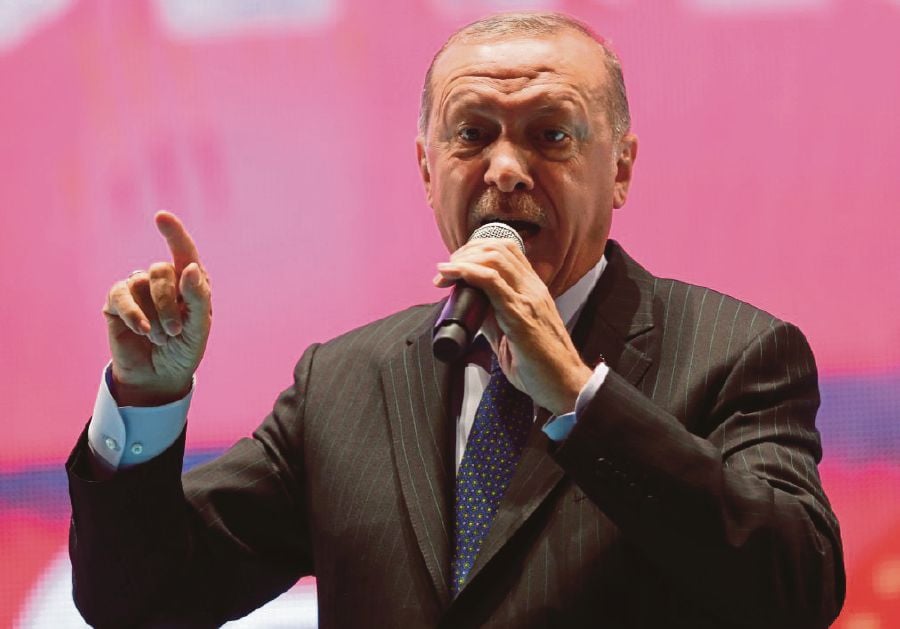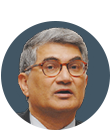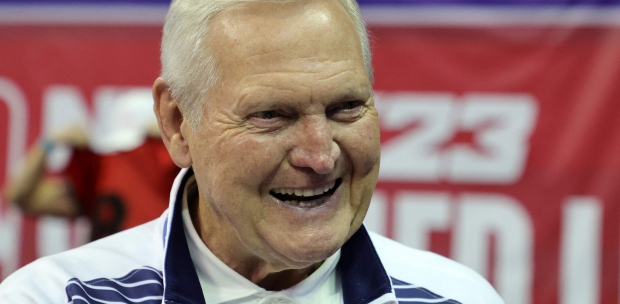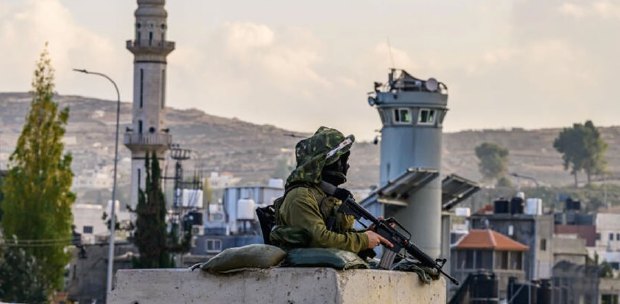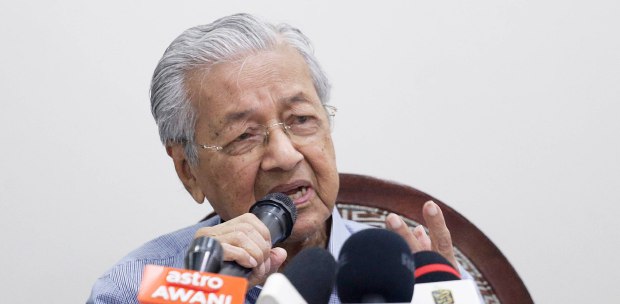TWO years is a very long time in politics. In Turkey, in the psyche of the overwhelming majority of people, it is also a poignant and reflective reminder of the fragility of democracy when on the night of July 15, 2016, a faction of disaffected plotters mainly in the middle ranks of the armed forces, and allegedly belonging to the Fethullah Gulen religious cult, saw fit to stage “a very amateur coup”.
As Turks commemorated the second anniversary of the failed coup on Sunday and yesterday, they no doubt also remembered those 200 lives that died and paid tribute to the thousands of Turks throughout the country from all parts of the political spectrum, who stood up against the army bully boys in defence of their democracy and its institutions.
Military intervention used to be in the genes of the Turkish body politic. The West used to jest about the 10-year cycle of military coups in Turkey, the seemingly perpetual Sick Man of Europe. The last one was in 1980 just after a junta led by General Kenan Evren seized power. But thanks to the two modern-day heroes of republican Turkey, the late Turgut Ozal and Recep Tayyip Erdogan, despite what their detractors would say, the power of the military was steadily frittered away in the last two decades of the 20th century and subsequently banished to the barracks in the first decade of the 21st century in the halcyon days of Erdogan’s premiership.
That feat alone was hardly recognised by the West, which still today has an atavistic prejudice against what a modern independent, and economically and militarily strong Turkey, fuelled by a distorted Judaeo-Christian and orientalist view of both the Ottoman Empire and Turkey’s place in the region and wider world.
In fact, they still see Turkey and Turks as Europe’s Muslim bogeymen in an essentially Christian club, and the only acceptable way forward in their eyes would be for Turkey to acquiesce to Western liberalism.
Given the troubled, violent and chauvinistic history of the European tribes over the last century, especially in their treatment of the Jews and more recently of the Muslims, neither democracy nor humanist values are the preserve of the West.
The shabby treatment of the West towards Turkey whether in terms of Ankara’s accession talks to membership of the European Union; by the major rating agencies in their baffling assessment of Turkey when they even saw fit to give Yeltsin’s Russia a higher rating than an economically far more vibrant Turkey; by the anti-Turkey liberal agenda espoused by the Western media and recently referred to by Malaysia’s ‘prime minister-in-waiting’ Datuk Seri Anwar Ibrahim during his recent trip to Turkey in emphatic endorsement of Erdogan’s candidature in the June 24 presidential elections, which he comfortably won; and the so-called alleged creeping Islamisation of Turkey by Erdogan, is as much responsible for giving succour to the rogue elements in the Turkish military to attempt a coup.
This was further reflected in the delayed and tepid condemnation of the failed coup by the West and North Atlantic Treaty Organisation, of which Turkey is supposedly the eastern flank of the military and security alliance against the erstwhile Soviet and current Russian threat.
Never mind the fact that it was the first time in Turkey’s 95-year history that a military coup failed. But no amount of Western chicanery can detract from the fact that the July 15 marks a symbolic victory for the Turkish people, who doggedly showed the world they would determine their own destiny.
Whatever the flaws and faults of Erdogan — he like all politicians do have them — his stunning 53 per cent victory in the presidential elections caught the West and his critics elsewhere by surprise. He has moved fast to consolidate the successful change-over to a presidential system, which some stress has concentrated too much power in the presidency and is bereft of adequate checks and balances.
Erdogan’s victory, his supporters argue, is a vindication of ‘the man, his policies and his values.’ While he emerged from the failed coup shaken, stirred but stronger, his demeanour following that of his presidential and his AK Party led parliamentary victory, suggests that of a leader driven by a determination to restore Turkey’s standing both amongst his own people and the international community, especially close friends in the Muslim world, which following the victory of the Pakatan Harapan coalition in May, includes Malaysia.
Anwar’s recent stay in Turkey, also for medical treatment, and Malaysian Prime Minister Tun Dr Mahathir Mohamad’s past strong relations with Erdogan and AK Party, augurs well for the future of Turco-Malaysian relations. In June, for instance, the Turkish Ministry of Education added Bahasa — the Malaysian and Indonesian dialects — to the public school curriculum, to be taught as a foreign language, of which there are currently 19 available. Turkey considers Bahasa, which is spoken by almost 180 million people, as “strategic” in its effort to enhance cultural ties and future relations with those countries.
In a recent interview with Daily Sabah, Anwar reiterated that relations between the two countries are strong, although in the areas of “trade, investment, culture, education and technology” there should be further cooperation, well beyond the current US$2 billion (RM8 billion) bilateral trade. “There is a growing interest in Malaysia (for Turkish goods) and we need to support this, he added.
Erdogan however also ‘measures’ one aspect of Turkey’s foreign policy through the assistance governments give in his fight against the alleged Gülenist Terror Group (FETÖ), which he blames for orchestrating the July 15, 2016 coup attempt. Malaysia in June last year extradited three members of the group to Turkey. It remains to be seen whether the PH government would entertain further extraditions of alleged FETO members in Malaysia to Turkey.
Going forward, Erdogan’s best riposte to potential future coup plotters, is to match economic reform, especially reining in inflation and boosting the lira, stability and prosperity with strengthening the country’s democratic institutions, culture, inclusivity and accountability. To achieve this, Erdogan must also prioritise national reconciliation of essentially a divided society and democratic vigilance.
Mushtak Parker is an independent London-based economist and writer


